
“I’m telling you, we need better locks for the cans,” I suggested one morning as Kyle angrily watched me scoop up the scattered garbage. “Maybe some chicken wire around the garden too. My sister Jane says that worked for them.”
“I don’t care what your sister says. What we need is to get rid of them. Permanently.”
I remembered when we first met, how his spontaneity had seemed charming. Now, at forty, that impulsiveness had morphed into an iron-fisted need to control everything, including me.
“Kyle, please. Can’t we try the peaceful way first?”
He jabbed a finger at me. “You always do this, Josie. Always trying to make everything complicated when there’s a simple solution right in front of us.”
“Simple doesn’t always mean right.”
He slammed the broom against the side of the house. “What was that?”
I flinched. “Nothing. I’ll look into better trash cans today.”
That weekend, I found Kyle in the garage, assembling something metallic.
“What’s that?” I asked, though I already knew. Animal traps.
He didn’t look up. “Insurance. These smart traps will catch anything that comes near our trash.”
“Kyle, please. They could hurt them.”
He slammed down his screwdriver. “That’s the point! I’m so sick of you defending these disease-carrying vermin. You act like they’re some kind of pets.”
“They’re not pets, but they don’t deserve to suffer. Maybe if we just—”
“Maybe if we just what, Josie? Let them take over? Build them a guest house while we’re at it? I’ve had it with your bleeding heart routine.”
I felt tears welling up but forced them back. “Why does everything have to be solved with violence? They’re just hungry animals, Kyle.”
He stood up, his face red. “You want to know what I think? I think you care more about these pests than our home. Than me.”
“That’s not fair.”
“Isn’t it? Every time I try to solve a problem, you fight me. The raccoons, the neighbor’s dog that keeps barking all night, even that group of teens that hangs out by our fence.”
“Those are all living beings, Kyle. Not problems to be ‘solved.’”
“This is my house!” he yelled, making me jump. “I work every day to pay for it, to keep it nice, and I’m not going to let some animals destroy it while my stupid wife takes their side!”
When the raccoons started showing up again this spring, Kyle completely lost it.
That evening, I was folding laundry when he stormed in, waving a piece of paper and grinning like he’d won the lottery.
“You’ll never guess what I found at the hardware store. Industrial-grade pest control. Guaranteed to solve our little problem.”
I took the paper. It was a receipt for animal traps and some kind of poison. My hands started trembling.
“Kyle, you can’t be serious. That stuff could kill them!”
He snatched the receipt back. “That’s the point, Josie. God, sometimes I think you’re being dense on purpose.”
“But what if neighborhood cats get into it? Or someone’s dog? We could get in trouble.”
Kyle’s face darkened. “I’ve made up my mind. The raccoons are gone by the end of the week, one way or another.”
I spent that night tossing and turning, my mind racing. When did the man I married become someone who could so casually talk about killing innocent creatures?
I thought about calling Jane, but I already knew what she’d say. She’d never liked Kyle and always said there was something off about him. Maybe I should have listened.
The breaking point came on a quiet Tuesday night two days later. I was reading in bed when I heard rustling outside. Peering through the window, I saw one of the trash cans had been knocked over again.
I slipped on my robe and grabbed a flashlight. As I approached the mess, something caught my eye. It was a black garbage bag, partially open, with something moving inside.
My hands trembled as I reached for it. “Oh no. No, no, no…”
Inside were three tiny raccoon babies, barely old enough to open their eyes. They were squirming weakly.
“Kyle!” I screamed, cradling the bag close. “Kyle, get out here right now!”
He appeared on the porch, looking annoyed. “What are you yelling about? It’s the middle of the night, you crazy woman!”
“Did you do this?” I held up the bag. “Did you throw away baby animals like they were garbage?”
He shrugged. “They’re pests. I’m handling it.”
“Handling it? They’ll die!”
“That’s the point, Josie. Jesus, why are you so naive? They’re just raccoons!”
“Just raccoons? They’re babies, Kyle! Living, breathing creatures that feel pain and fear. How would you feel if someone threw you away to die?”
He laughed, a cold sound that made me shiver. “Now you’re comparing me to a raccoon? How dare you, Josie?”
“I’m comparing you to someone with empathy, and you’re coming up short.”
Kyle stepped closer, his voice a chilling growl that made my blood run cold. “You know what your problem is? You’re soft. Always have been. The world isn’t some fairy tale where we all just get along. Sometimes you have to be tough.”
“Tough? There’s nothing tough about hurting something weaker than you. That’s just cruel.”
I looked at him and wondered how I’d never seen the cruelty that had always been there.
The next morning, I called every wildlife rescue in the area until I found one that could help. A kind woman named Marla showed me how to feed the raccoon kits with a tiny bottle.
“You’re doing great,” she assured me, watching as I cradled the smallest one. “They’re lucky you found them when you did.”
As I watched the kit suckle eagerly, tears rolled down my cheeks. “I just don’t understand how someone could be so cruel.”
Marla squeezed my shoulder. “Sometimes the animals we save end up saving us too.”
That evening, I found Kyle’s journal and a detailed plan for dealing with the “raccoon infestation.” It included poison locations, trap placements, and even a schedule. The methodical cruelty of it made me sick.
When Jane arrived, she saw the journal in my hands.
“Still think I’m overreacting?” I asked, showing her the pages.
She shook her head. “Josie, this isn’t about raccoons anymore. Maybe it never was.”
“I know,” I whispered. “I think I’ve always known.”
The divorce papers were served a week later. Kyle didn’t seem surprised, just angry. As always.
“You’re really throwing me out over some pests?” he spat as he packed his things into boxes.
I stood my ground in the doorway of what was now my house alone. “No, Kyle. I’m ending this because of who you’ve become. Who you’ve always been, maybe, and I just didn’t want to see it.”
Days turned into weeks. The raccoon kits grew stronger.
The smallest one was shy and always hid behind his siblings. The middle one was curious about everything. And the biggest was protective, always watching out for the others.
Marla helped me release them back into the wild when they were ready. As we watched them toddle toward the treeline, I saw movement in the bushes. There, watching us, was their mother.
“Look,” Marla whispered. “She came back for them.”
The mother raccoon chittered softly, and her babies ran to her. Before disappearing into the forest, she turned and looked right at me. In that instance, I felt a connection to something larger than myself. Compassion.
“You know,” Marla said, “there’s an opening at the rescue center if you’re interested. We could use someone with your kindness.”
I smiled, feeling lighter than I had in years. “I’d like that.”
“You know, Josie, you can tell a lot about a person by how they treat animals. They’re like a mirror that reflects our true selves.”
Looking back, I realized the raccoons hadn’t just been victims of Kyle’s cruelty. They’d been my wake-up call. Sometimes it takes seeing someone else’s vulnerability to recognize your own.
As the raccoons disappeared into the trees, I took a deep breath and felt ready for a fresh start. I knew I deserved better, and that someday, I’d find the right person who saw the world with the same compassion I did.
Minha madrasta secretamente cancelou meu compromisso com o cabelo do baile para arruinar meu dia – mas ela ficou de queixo caído quando uma limusine apareceu para mim

Quando Emily está se preparando para o baile, ela quer caprichar na roupa, no cabelo e na maquiagem. Mas sua problemática madrasta, Carla, intervém e toma as coisas em suas próprias mãos, cancelando o compromisso de cabelo de Emily. Nem tudo está perdido quando uma limusine aparece do lado de fora da casa de Emily… mas quem planejou isso?
Certo, apertem os cintos porque vocês precisam ouvir sobre isso!
Para contextualizar, sou Emily, 17, e estou no último ano do ensino médio. Moro com meu pai, minha madrasta Carla e seu filho, Mason. Ele tem 11 anos e, honestamente, nos damos bem como dois irmãos deveriam.

Uma menina sorridente | Fonte: Midjourney
Mas Carla?
É, essa mulher não me suporta.
Tudo começou há 7 anos, depois que minha mãe faleceu de um resfriado que não passava. Antes que eu percebesse, meu pai estava saindo com Carla, e um ano depois, ele se casou com ela.
“Seu pai não perde tempo, não é?”, minha tia fungou no dia do casamento. “E quem é Carla, afinal? Ela não é nada comparada à sua mãe!”
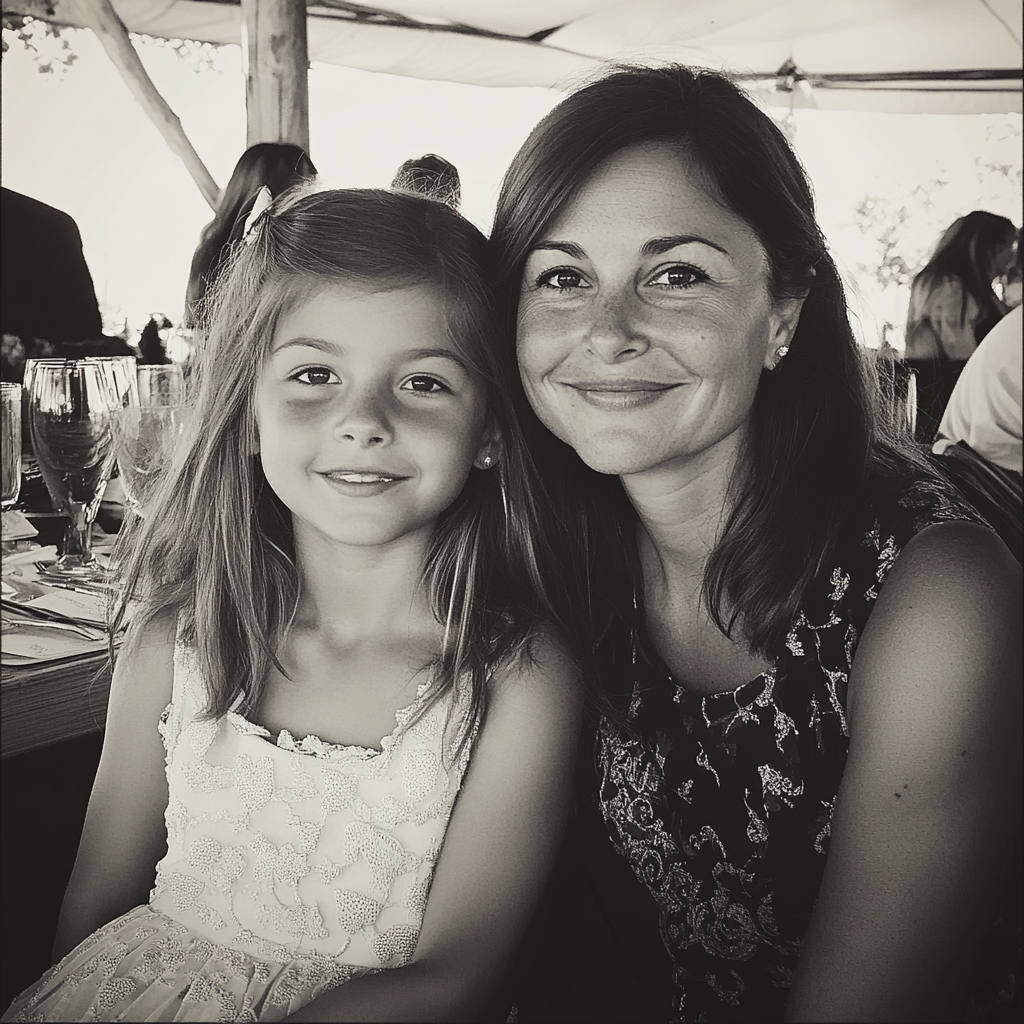
Uma menina e sua tia | Fonte: Midjourney
Carla estava bem no começo. Quer dizer, ela tentou muito me colocar do lado dela. Mas lentamente, as investidas passivo-agressivas começaram a se acumular. Lembro que uma vez a peguei me encarando.
“Você se parece muito com sua mãe, Emily”, ela disse. “Na verdade, me dói olhar para você. Não é de se espantar que seu pai dê mais atenção a Mason. Ele está mais próximo de Mason agora, não é?”
Suspirei e a ignorei, tentando não deixar que suas palavras me afetassem.
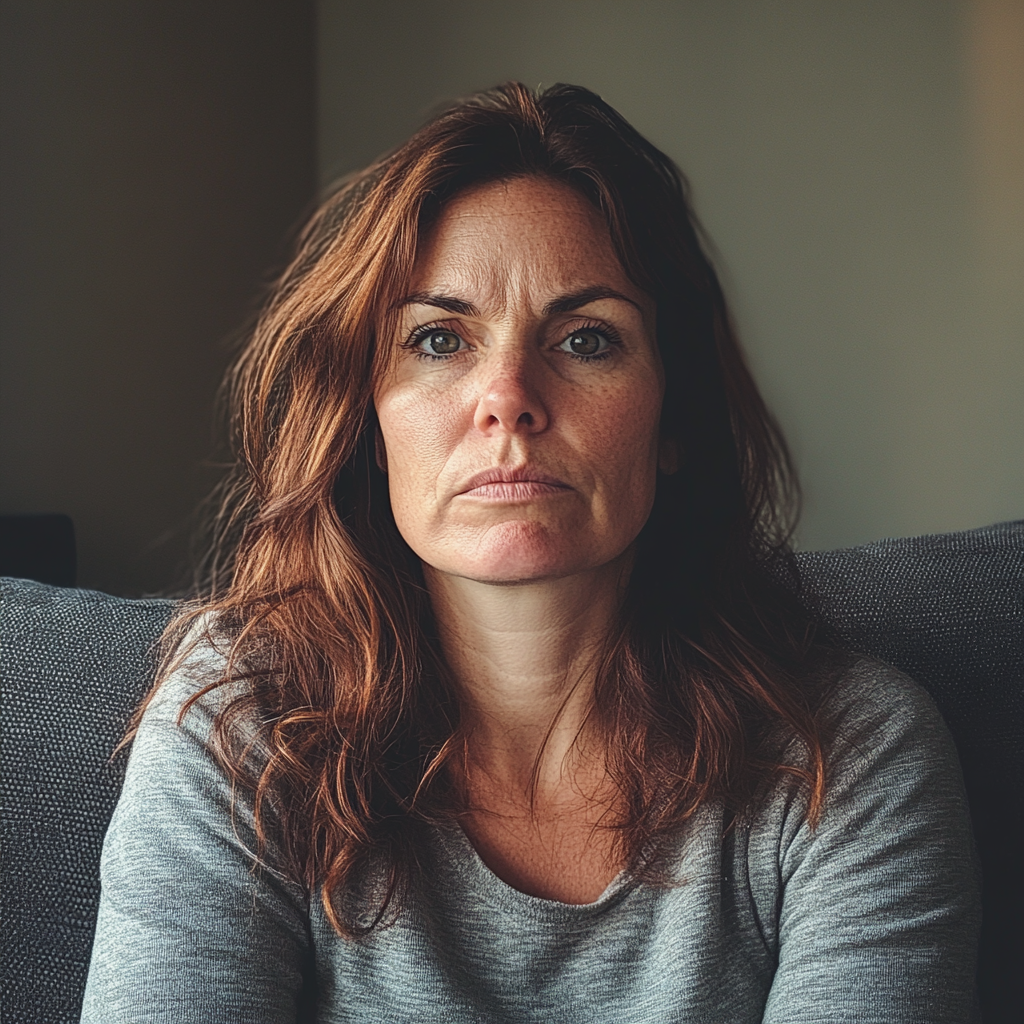
Um close de uma mulher | Fonte: Midjourney
Meu pai, claro, não notou nada. Era como se ele não conseguisse — ou simplesmente não quisesse — ver como Carla me tratava. E ela amava isso. Ela amava ser a única pronta para me provocar.
De qualquer forma, avancemos para a temporada de bailes. Como todas as outras garotas da minha classe, eu estava sonhando com a noite perfeita. Economizei dinheiro suficiente para babá por meses para comprar um lindo vestido violeta.
Não pude deixar de desejar que minha mãe estivesse por perto para passar esses momentos comigo.
Mas foi por isso que escolhi o vestido violeta. Era a cor favorita dela.
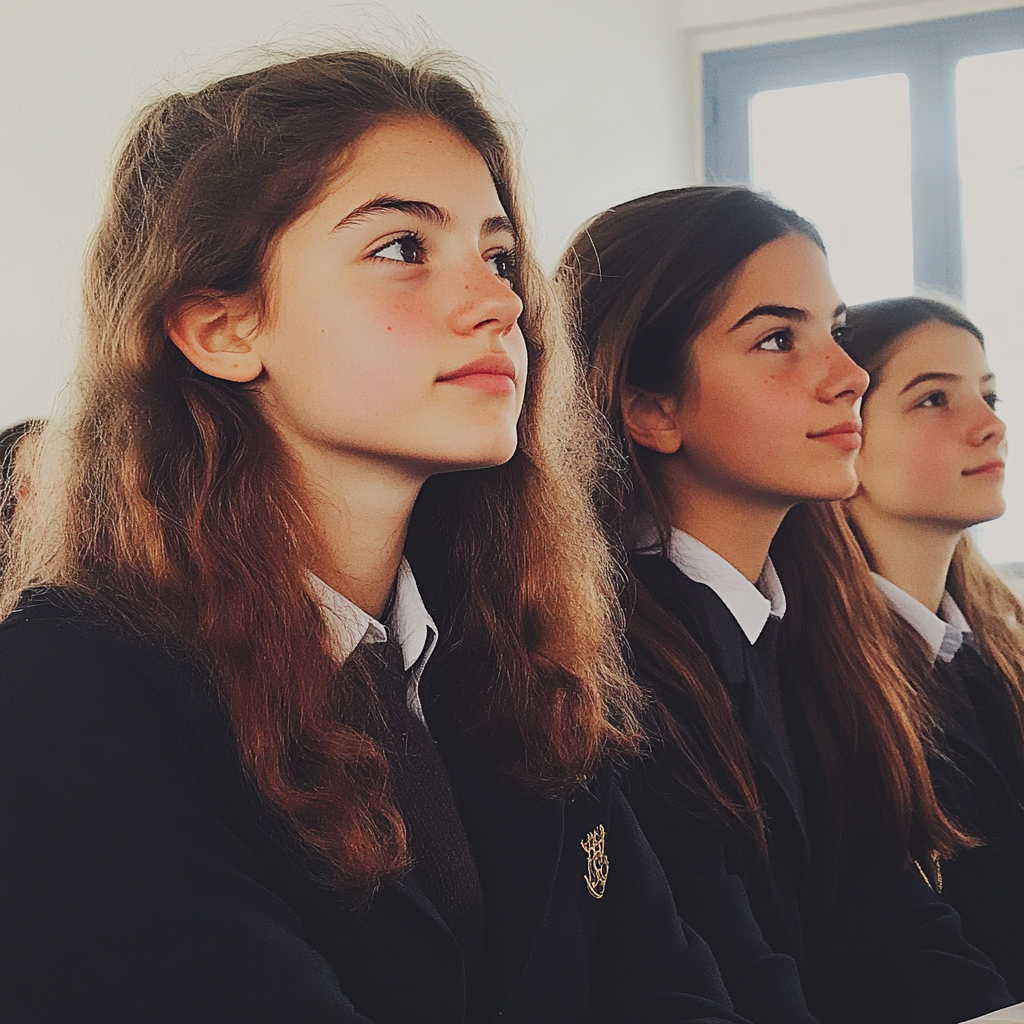
Um grupo de estudantes | Fonte: Midjourney
O baile seria minha noite. Eu simplesmente sabia.
Sempre que pensava nisso, eu sentia como se algo mágico fosse acontecer no baile. Para me sentir ainda melhor, marquei um horário para o cabelo em um salão chique. Todas as minhas amigas também iriam para lá.
Estava tudo pronto.
Mas então chegou o grande dia, e Carla fez questão de estragar tudo.

Uma garota chateada | Fonte: Midjourney
Fui ao salão toda animada, mas quando cheguei lá a recepcionista olhou para mim, confusa.
“Emily? Tem certeza?” ela perguntou, olhando para a tela do computador. “Zelda me disse que você cancelou?”
“Eu não fiz!”, exclamei. “Por que faria? O baile é hoje à noite!”
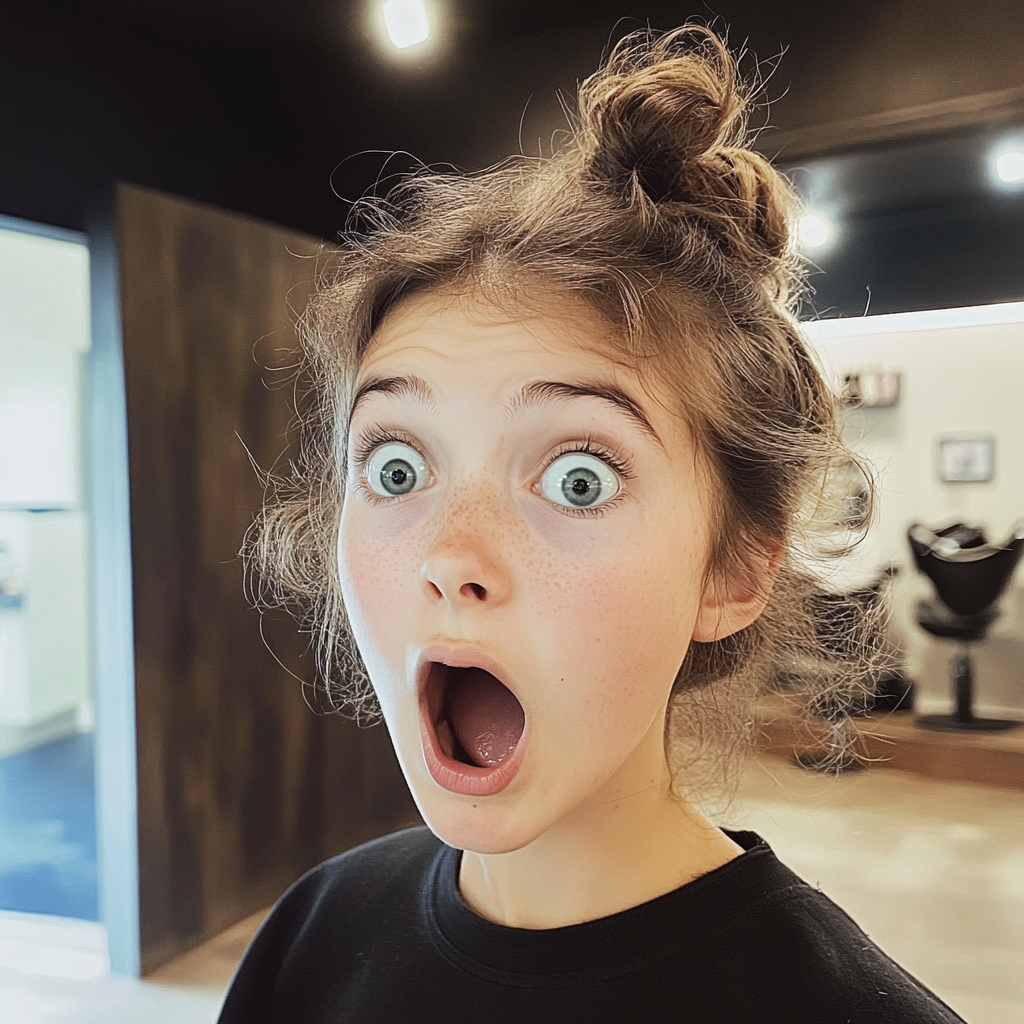
Uma garota chocada em um salão de cabeleireiro | Fonte: Midjourney
“Calma, querida”, disse a recepcionista. “Vou pegar a Zelda.”
Esperei impacientemente enquanto ela foi buscar o cabeleireiro. Finalmente, eles retornaram.
O cabeleireiro parecia desconfortável.
“Recebi uma ligação hoje mais cedo dizendo que você queria cancelar sua consulta, Emily. Presumi que fosse sua mãe?”
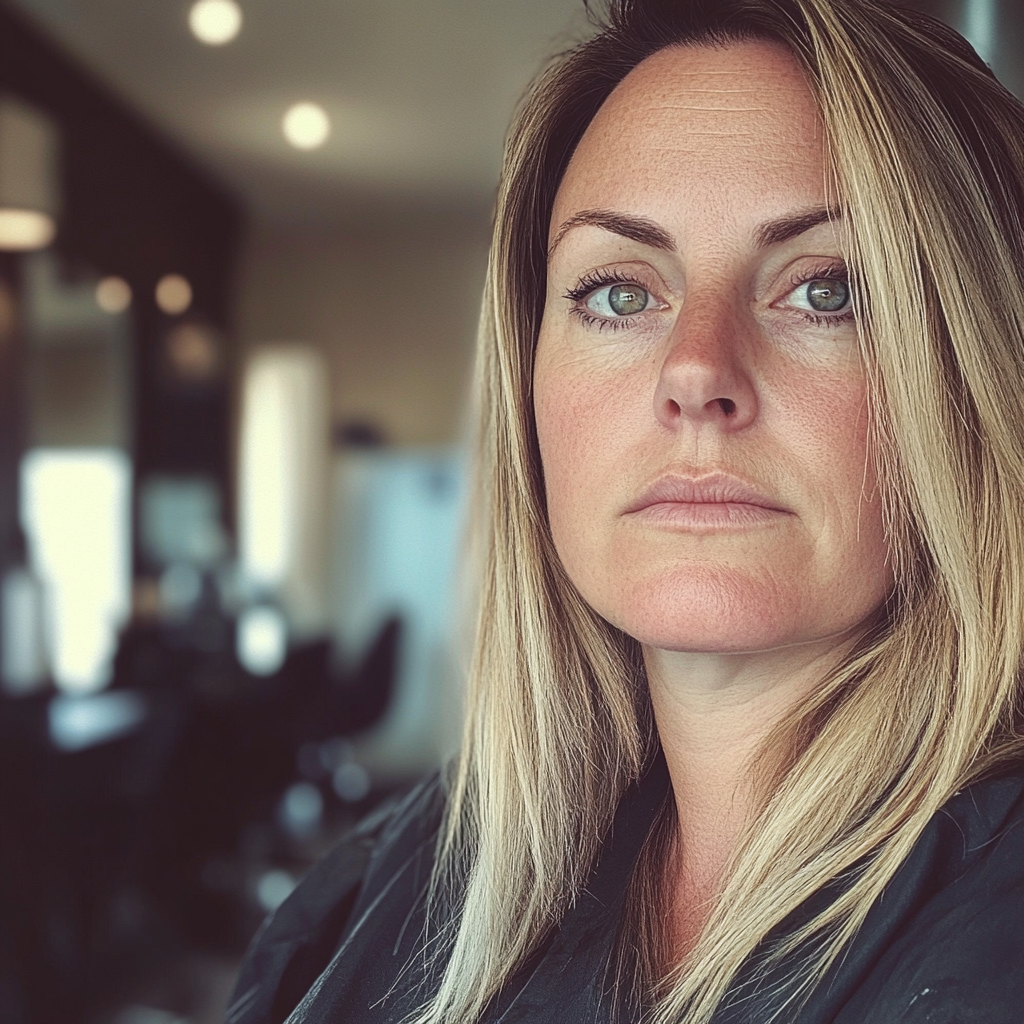
Um close de uma mulher | Fonte: Midjourney
Meu coração caiu. Cancelado? Como? Eu não cancelei! Que mãe?
Eu ainda estava processando tudo quando olhei e a vi.
Carla.
Sentada ali, arrumando o cabelo. Claro.
Ela me viu e apenas sorriu, seus olhos frios como aço. Carla tinha cancelado meu compromisso.

Uma mulher arrumando o cabelo | Fonte: Midjourney
“Existe alguma maneira de você ainda me agendar?”, perguntei a Zelda.
Ela balançou a cabeça tristemente.
“Sinto muito”, ela disse. “Quando seu compromisso foi cancelado, uma mulher ligou e agendou o seu próprio. Todos os nossos horários estão ocupados. Sinto muito, querida.”
Fiquei ali em choque. Então, Carla ligou fingindo ser eu? Fingindo ser minha mãe? E então ela marcou minha consulta para poder me ver ficar decepcionada?
Doente.

Uma adolescente chateada | Fonte: Midjourney
Eu mal consegui me controlar enquanto saía correndo do salão, minha cabeça girando. Eu me sentia enjoada.
Meu baile de formatura perfeito? Estava simplesmente desmoronando ao meu redor. Quando cheguei em casa, me tranquei no meu quarto, com lágrimas escorrendo pelo meu rosto.
Sentei-me na minha penteadeira tentando arrumar meu cabelo sozinha, mas nada parecia bom. Eu me senti estúpida por contar meus planos para Carla de passagem.
Viu o que aconteceu?
Olhei para meu vestido pendurado num cabide.
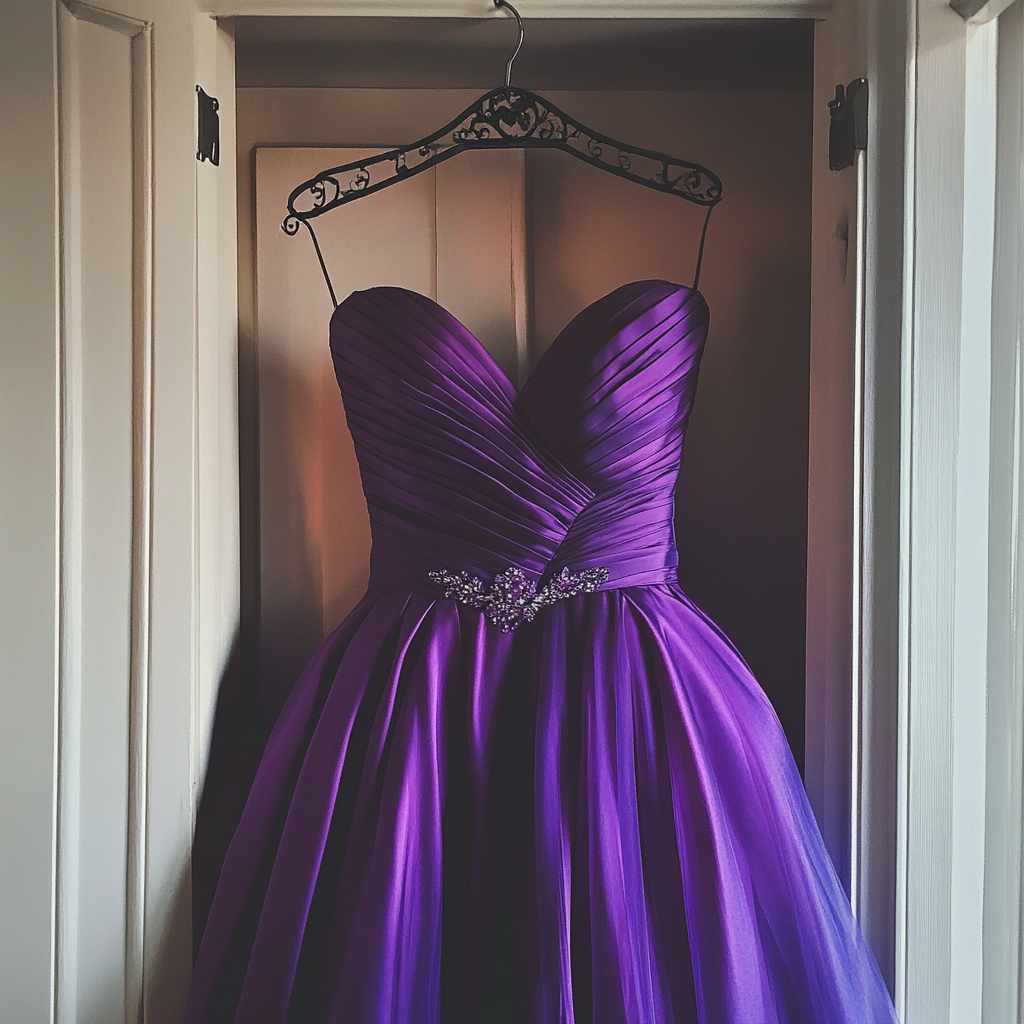
Um vestido de baile pendurado em um armário | Fonte: Midjourney
Eu nem tinha mais certeza se queria ir ao baile.
Fiquei ali sentada, olhando para minha maquiagem na penteadeira e me perguntei se valia a pena. Tipo, qual era o sentido? Eu já estava chateada e não sentia que nada de bom viria disso.
De repente, ouvi uma buzina alta lá fora. Ignorei no começo, pensando que era apenas um carro qualquer.

A penteadeira de uma adolescente | Fonte: Midjourney
Mas não parou.
Limpei meus olhos com as costas da mão e me arrastei até a janela, esperando ver comoção na estrada. Mas quando olhei para fora, meu queixo caiu.
Uma limusine preta brilhante estava estacionada em frente à nossa casa.

Uma limusine preta e elegante estacionada do lado de fora | Fonte: Midjourney
Pensei que fosse algum tipo de engano. Não havia como o carro ser para mim. Os pais dos meus amigos disseram não quando conversamos sobre isso pela primeira vez meses atrás. Mas ainda assim, corri escada abaixo.
Fiquei na porta, esperando que algo acontecesse. O motorista saiu e caminhou até a porta da frente. Meu pai, que estava tão sem noção como sempre durante tudo isso, estava na nossa varanda, parecendo tão confuso quanto eu.
“Estou aqui pela Srta. Emily, senhor”, disse o motorista, estendendo um pequeno cartão.
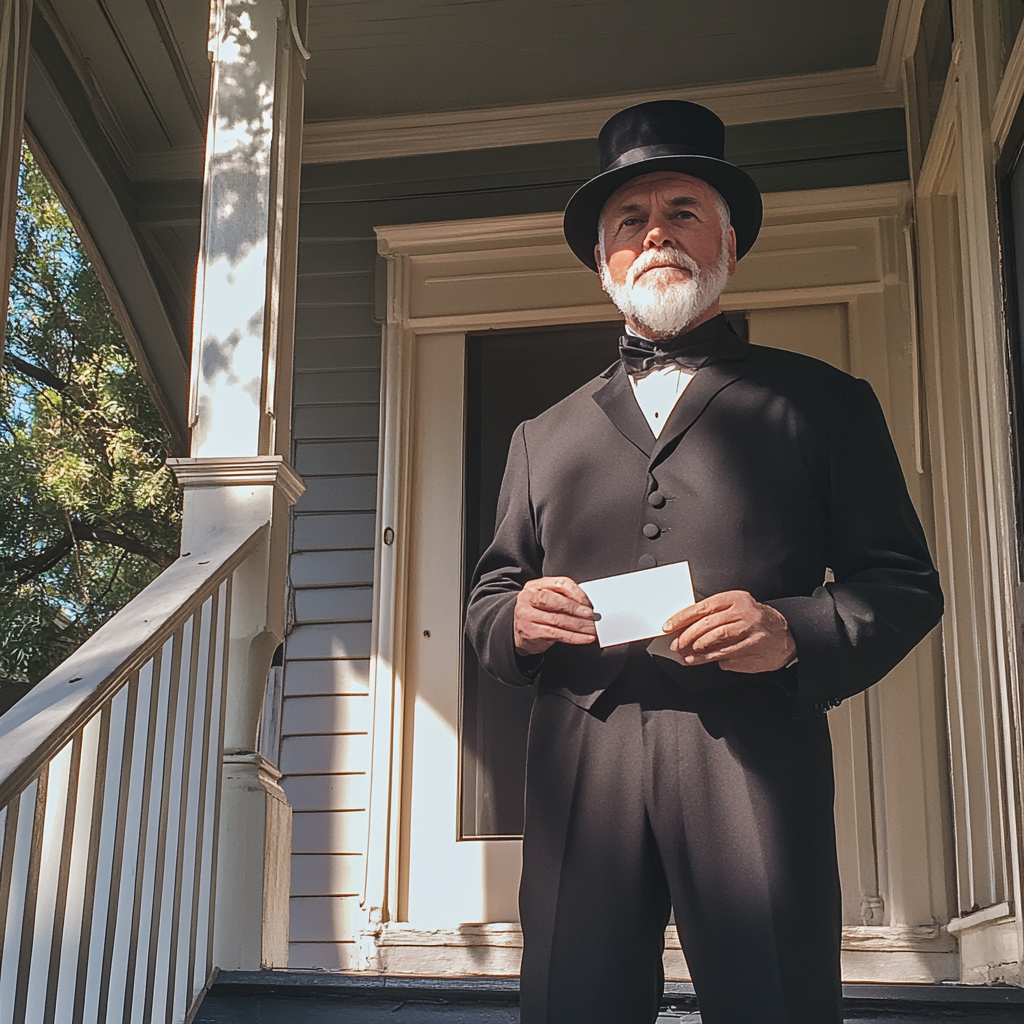
Um motorista segurando uma nota | Fonte: Midjourney
Senhorita Emily? Eu?
“Ela está bem aqui”, disse meu pai, acenando para mim.
Hesitantemente, peguei o cartão da mão do meu pai e o abri. Dentro, escrito em uma caligrafia caprichada, estavam as palavras:
Para minha linda irmã, Emily. Sei que você tem passado por momentos difíceis ultimamente, mas merece a melhor noite de todas! Aproveite a limusine e não se preocupe com nada. Tenho economizado todo o meu dinheiro de aniversário e Natal.
Tenha uma noite mágica, irmã.
Com amor, Mason.

Uma adolescente lendo uma nota | Fonte: Midjourney
Mason? Meu irmão de 11 anos fez isso?
Eu comecei a chorar de novo, mas dessa vez de puro choque e gratidão. Corri escada acima para encontrar Mason em seu quarto, sorrindo como se tivesse acabado de pregar a peça definitiva.
“Ouvi a mamãe no telefone esta manhã”, ele disse, dando de ombros como se isso não fosse grande coisa. “Eu sabia que não era justo de jeito nenhum.”
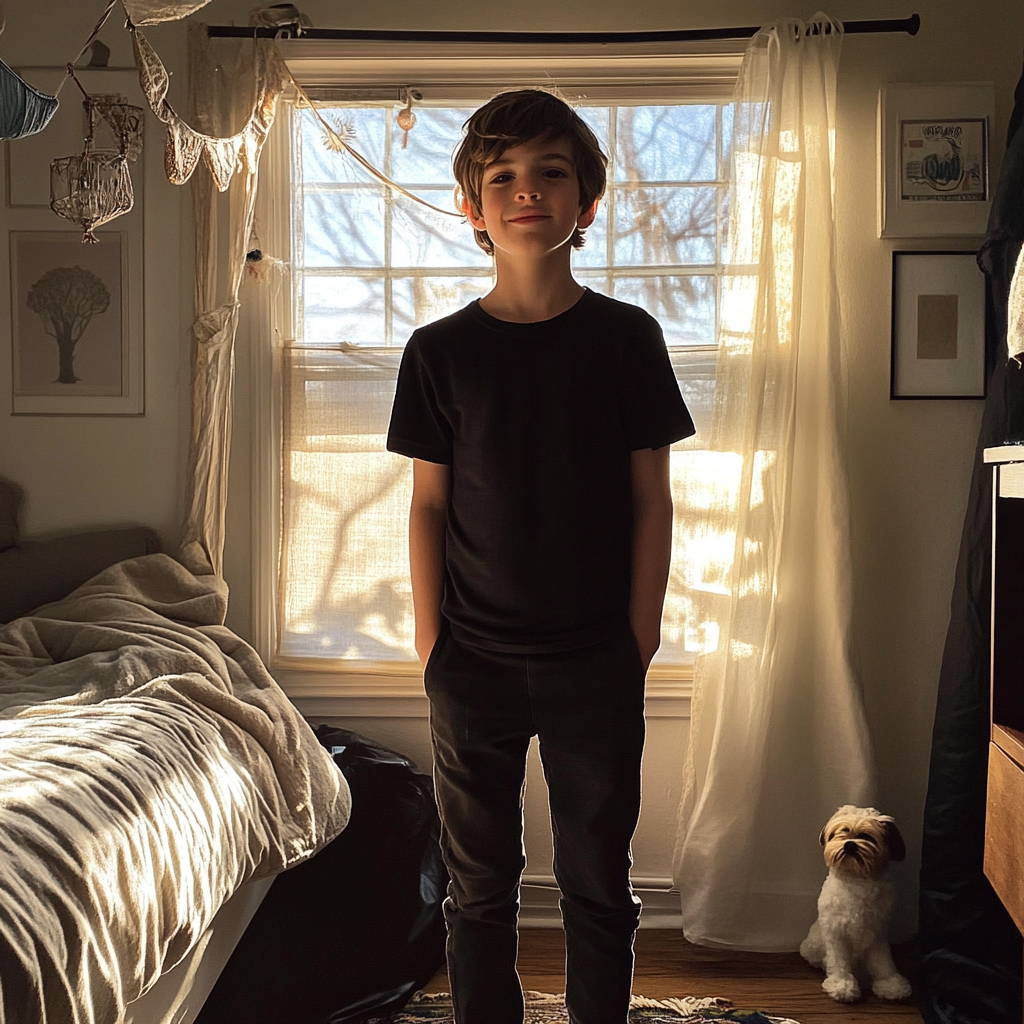
Um menino sorridente em seu quarto | Fonte: Midjourney
Acontece que ele ouviu Carla cancelando meu horário no cabeleireiro e, como um verdadeiro irmãozinho, resolveu resolver o problema por conta própria.
“Mas você realmente usou seu dinheiro?”, perguntei, me sentindo horrível.
“Na verdade não”, ele sorriu. “Veja, a mamãe tem economizado dinheiro para comprar um colar de diamantes chique. Ela tem mostrado o colar para o papai, esperando que ele o compre para ela. Mas ele disse não.”
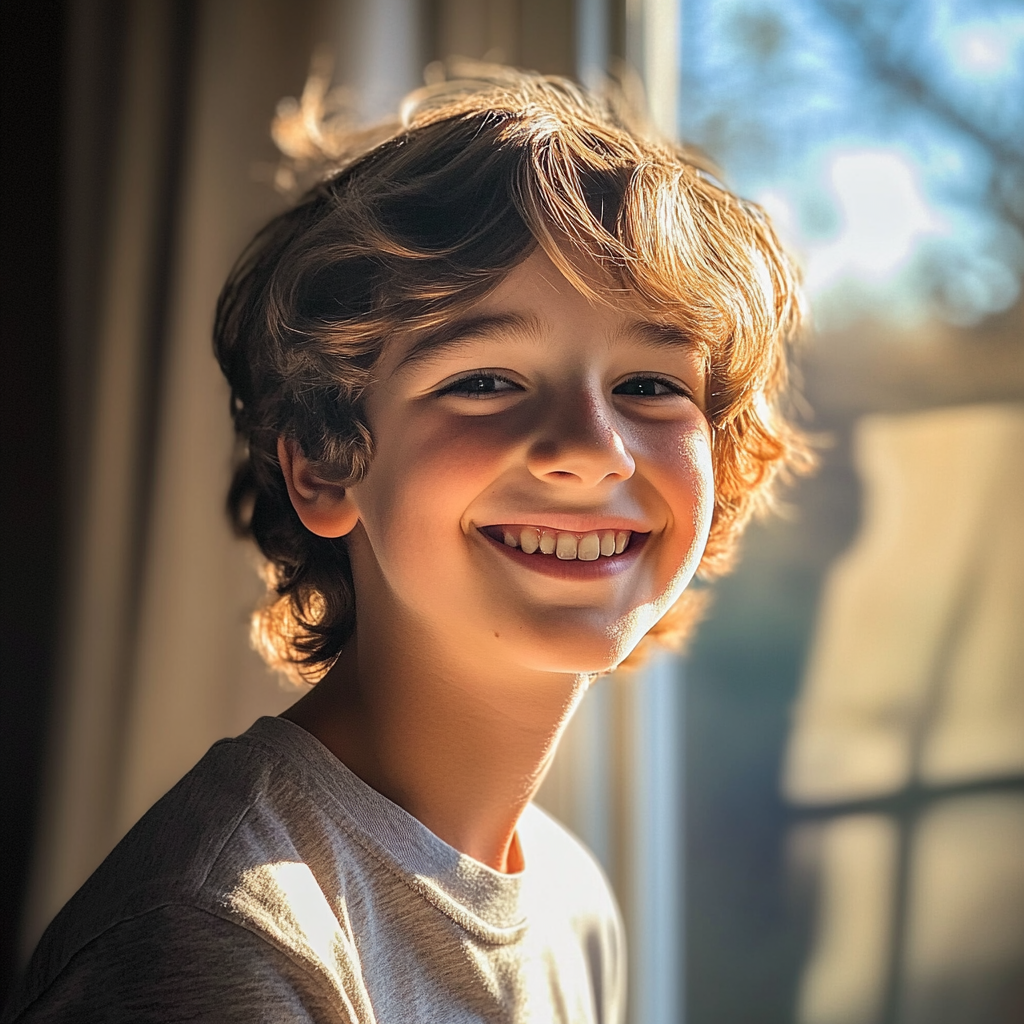
Um menino sorridente | Fonte: Midjourney
Bom para você, pai, pensei.
“De qualquer forma, depois que ouvi o telefonema dela, ela saiu de casa. Então, peguei parte do dinheiro do estoque dela e fui até o Sr. Johnson, que mora ao lado. Ele é dono da empresa de limusines, lembra?”
Mas Mason não parou por aí.

Uma menina sorridente | Fonte: Midjourney
“Tem mais, Em”, ele disse. “A Sra. Evans, do outro lado da rua? A filha dela é estilista no shopping. Ela vem aqui para fazer seu cabelo e maquiagem em breve.”
Assim que as palavras saíram de sua boca, a campainha tocou.
“Deve ser ela!” Mason disse. “Vá lavar o rosto, eu a mando subir.”
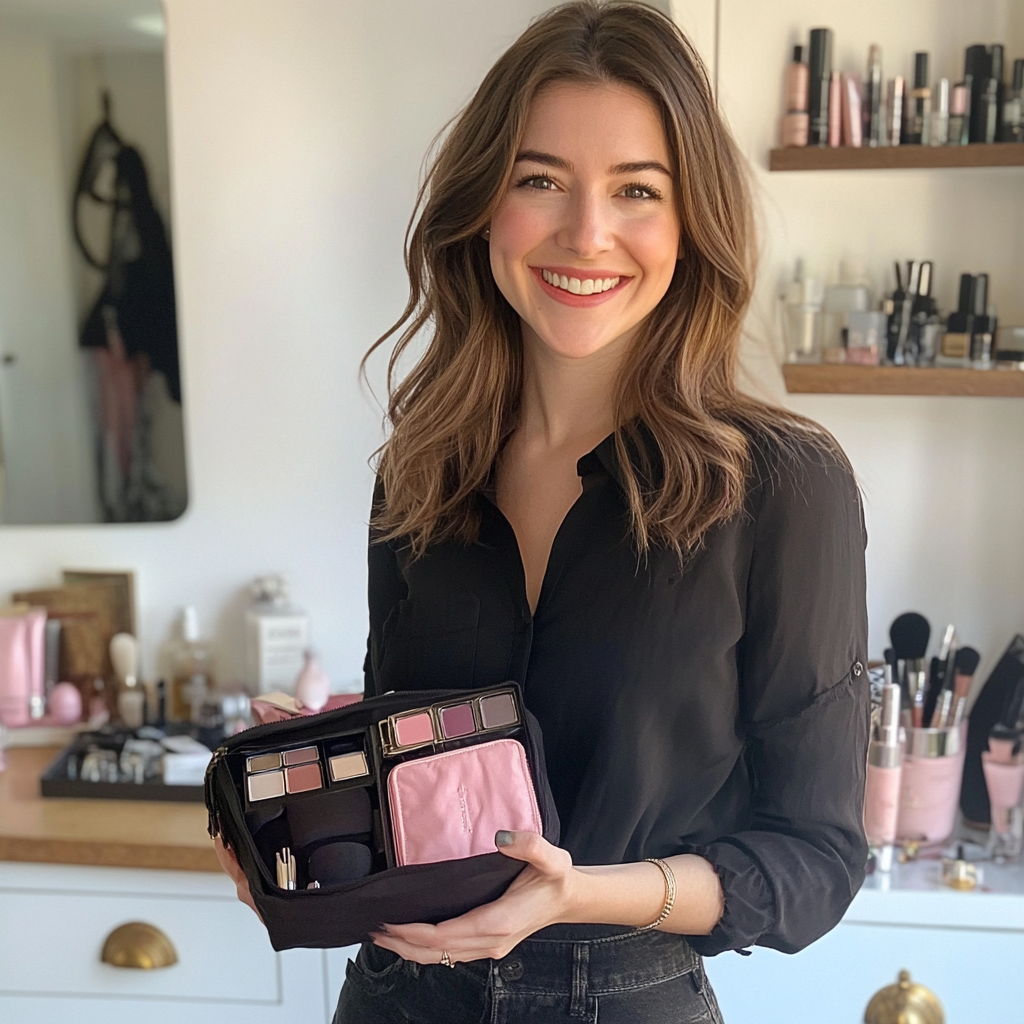
Uma estilista segurando sua bolsa de maquiagem | Fonte: Midjourney
Quando Mason cresceu? Eu me perguntei enquanto fazia o que ele disse.
Vinte minutos depois, eu passei de chorar no meu quarto para parecer uma princesa. Eu só queria que minha mãe estivesse por perto para me mimar. Para tirar fotos infinitas e me dizer o quão orgulhosa ela estava de mim. Eu queria um abraço dela mais do que qualquer coisa.
Mas ainda assim, Mason salvou o baile!
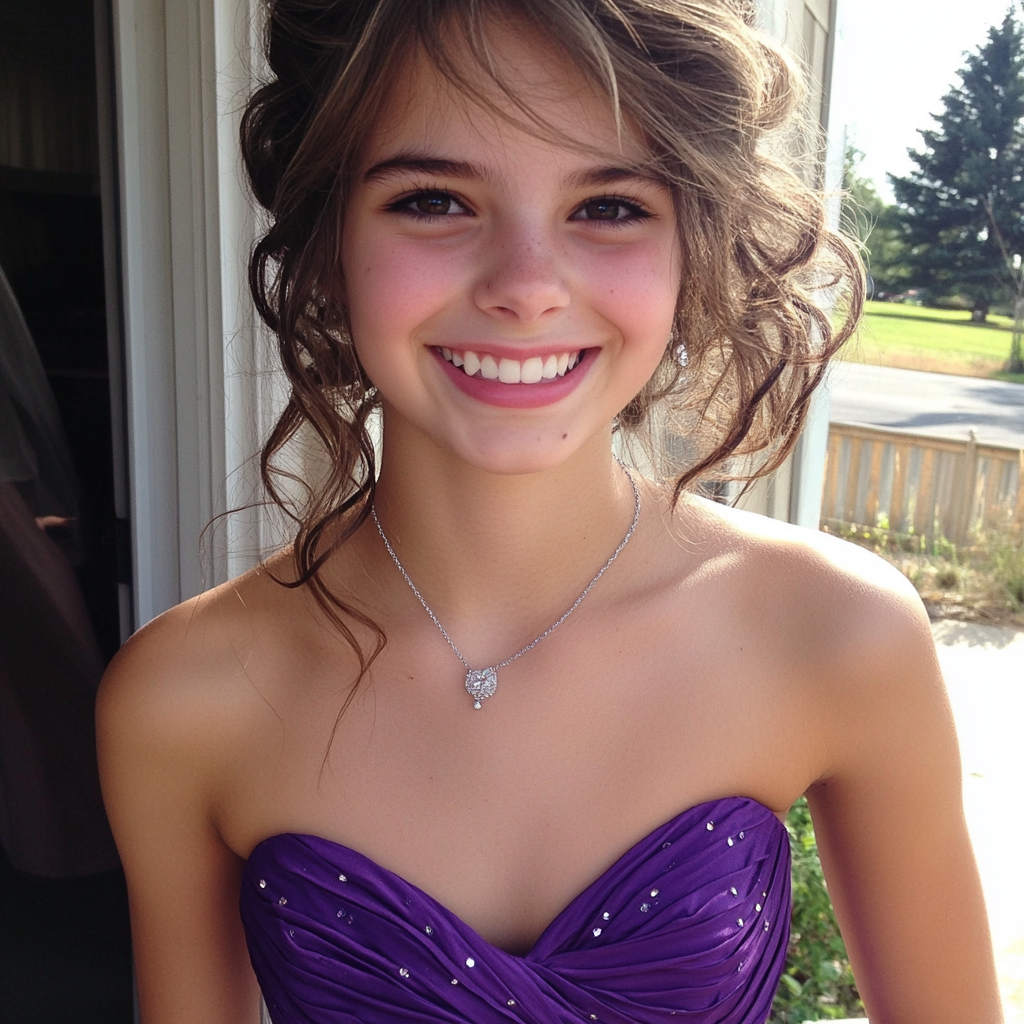
Uma adolescente sorridente vestida para o baile | Fonte: Midjourney
Quando Carla entrou na nossa garagem, eu já estava do lado de fora, entrando na limusine como uma estrela de cinema. O queixo dela caiu. E ela saiu do carro e ficou ali parada, atordoada.
O rosto dela? Oh meu Deus . Eu queria ter uma foto da expressão dela. Eu teria colado no meu espelho!
“Richard? Você fez isso?” Eu a ouvi gritar para meu pai antes que o motorista fechasse a porta.
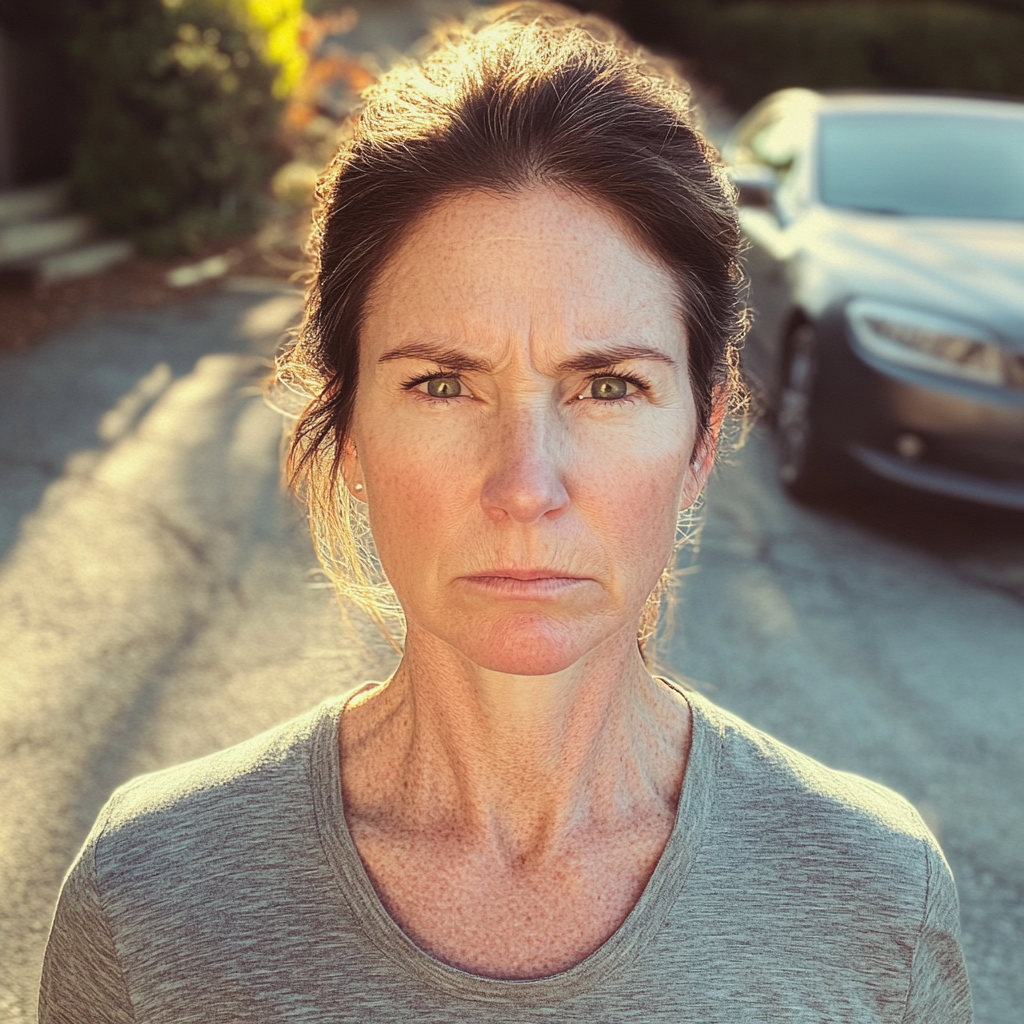
Uma mulher furiosa parada na entrada da garagem | Fonte: Midjourney
Momentos depois, o motorista me levou embora.
O baile foi tudo o que eu esperava. Quando cheguei ao salão na limusine, as cabeças se viraram. Eu estava radiante, e eu sabia disso. Pela primeira vez em muito tempo, senti como se minha mãe estivesse ali comigo.
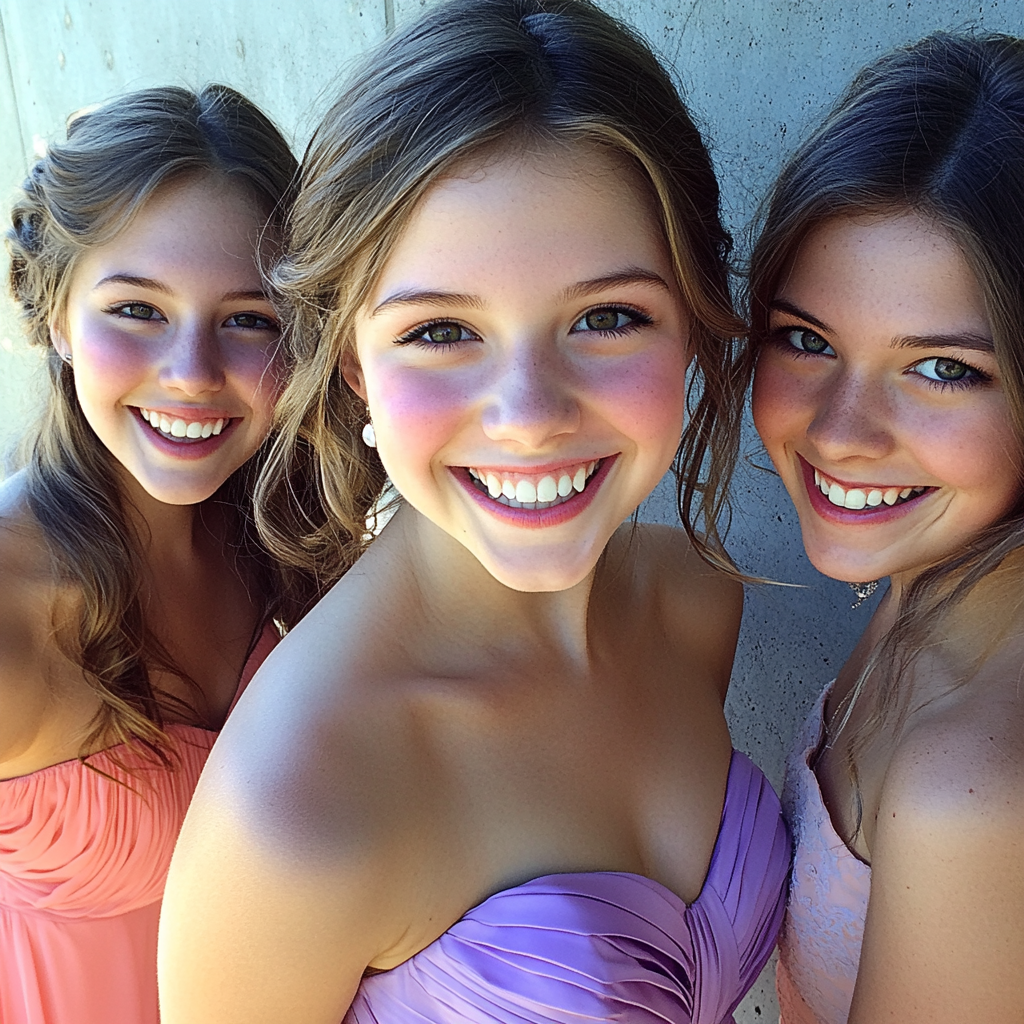
Adolescentes no baile de formatura | Fonte: Midjourney
A noite toda foi pura magia. Dançando, rindo com meus amigos e simplesmente esquecendo todo o drama em casa.
Quanto à Carla, espero que ela tenha aprendido uma lição. Você não pode mexer com a alegria de alguém e sair impune… especialmente se seu filho vai entrar e salvar o dia!

Uma mulher chateada sentada em um sofá | Fonte: Midjourney
O que você teria feito?
Se você gostou desta história, aqui vai outra para você |
Abri meu armário na manhã do baile e encontrei meu vestido coberto de tinta preta – mas o Karma não estava dormindo
Quando encontrei meu vestido de baile dos sonhos destruído por tinta preta, pensei que tudo estava perdido. Mal sabia eu, o karma estava esperando nos bastidores, pronto para virar o plano cruel de cabeça para baixo e arruinar o dia que algumas pessoas tentaram tornar perfeito às minhas custas.
Eu tinha 18 anos, estava no último ano do ensino médio, e o baile de formatura era tudo em que eu conseguia pensar. Eu deveria dançar com meus amigos, usar o vestido perfeito e criar memórias.

Um estudante do último ano do ensino médio sorridente | Fonte: Midjourney
Depois de meses economizando, finalmente comprei o vestido azul-bebê mais lindo. Era tudo o que eu sempre sonhei — elegante e clássico, me fazendo sentir como uma princesa.
Meu pai estava tão animado quanto eu. O único momento amargo foi que minha mãe não estaria lá para me ver. Ela havia falecido anos atrás, e desde então, éramos apenas eu, papai e minha madrasta, Carol.

Uma garota em um funeral | Fonte: Midjourney
Agora, Carol era… bem, ela era complicada. Ela se casou com meu pai quando eu tinha 14 anos, e digamos que não éramos próximos. Não discutíamos muito, mas também não conversávamos muito.
Este trabalho é inspirado em eventos e pessoas reais, mas foi ficcionalizado para fins criativos. Nomes, personagens e detalhes foram alterados para proteger a privacidade e melhorar a narrativa. Qualquer semelhança com pessoas reais, vivas ou mortas, ou eventos reais é mera coincidência e não intencional do autor.
O autor e a editora não fazem nenhuma reivindicação quanto à precisão dos eventos ou à representação dos personagens e não são responsáveis por nenhuma interpretação errônea. Esta história é fornecida “como está”, e quaisquer opiniões expressas são as dos personagens e não refletem as opiniões do autor ou da editora.



Leave a Reply